Organic Gardening for the Beginner
Organic gardening is an acquired skill that comes from having an open mind to changing ideas and ones' own lifestyle. You can learn to grow some or all of your own organic food with these easy steps to enrich your soil and to produce healthy plants. Build on your organic gardening skills with experience. Start small and expand as you gain confidence.
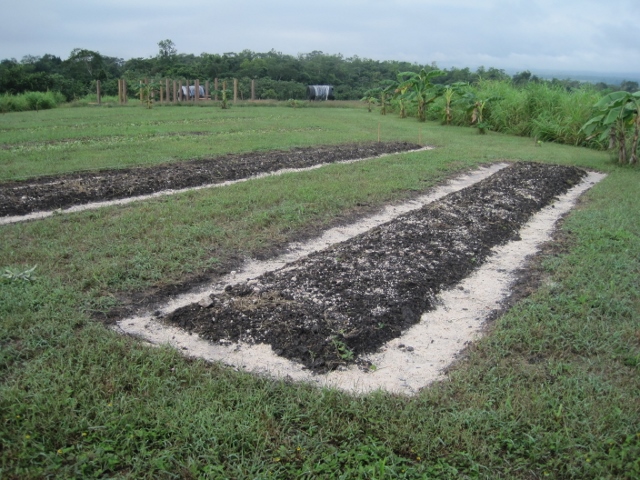 |
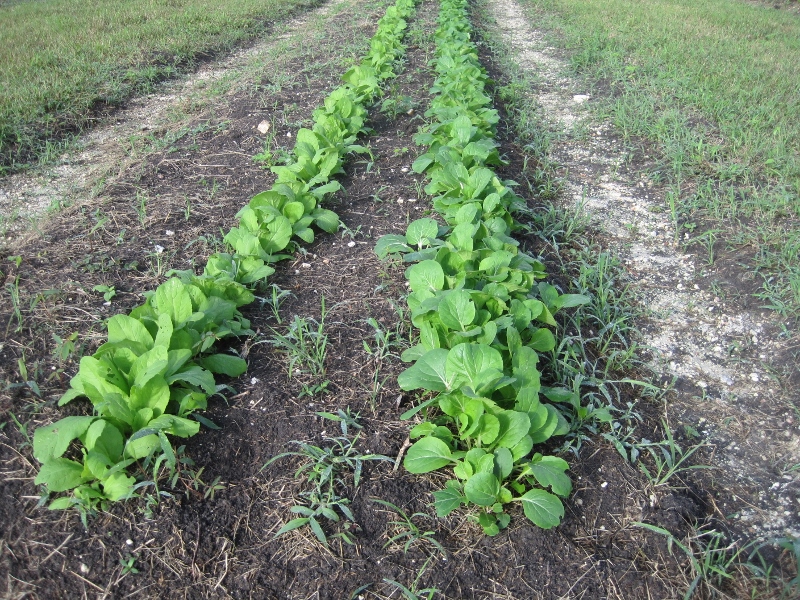 |
Steps to Starting Your Own Organic Garden
Here are some basic proven ideas we have used …more details to follow:
- Start a composting area or container for your kitchen waste.
- Prepare designated growing beds 4’ wide by whatever length is most manageable.
- Work with the top 3-6 inches of the soil by shallow cultivation followed by the addition of natural enrichments such as compost, aged manures, potting mixes etc.
- Start your vegetable seeds in sprouting trays and transplant when 2nd leaf forms.
- Enrich your soil by adding liquid fish fertilizer to your watering can.
- Make your own natural insect repellent.
- Daily inspection is required.
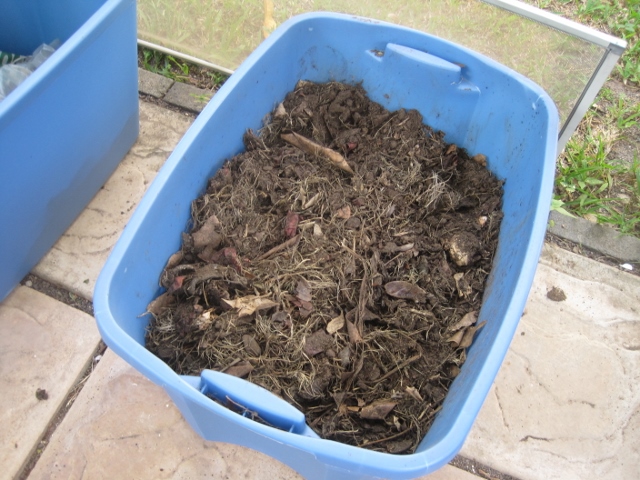 |
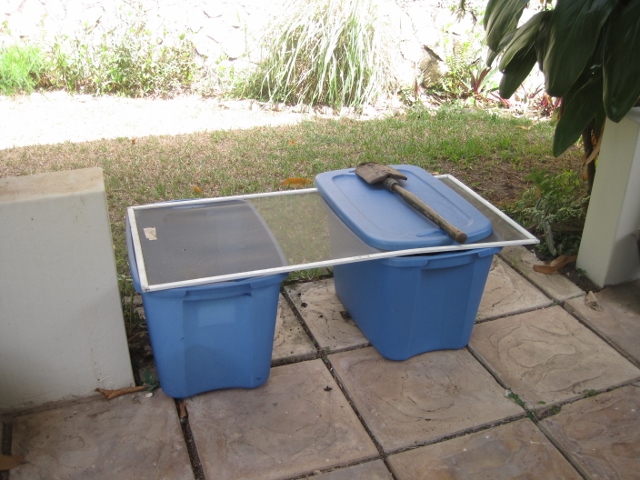 |
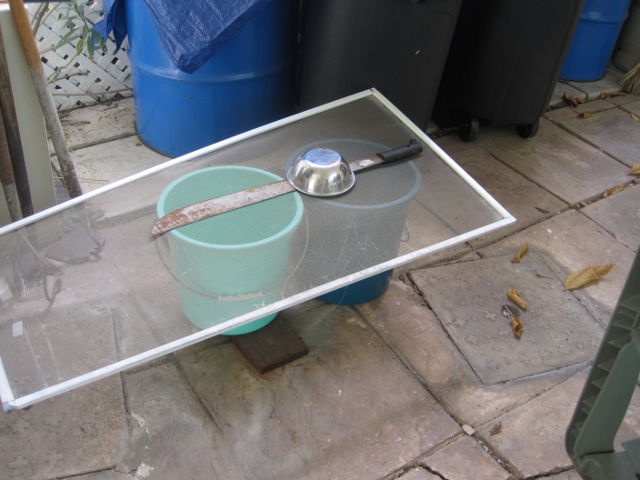 |
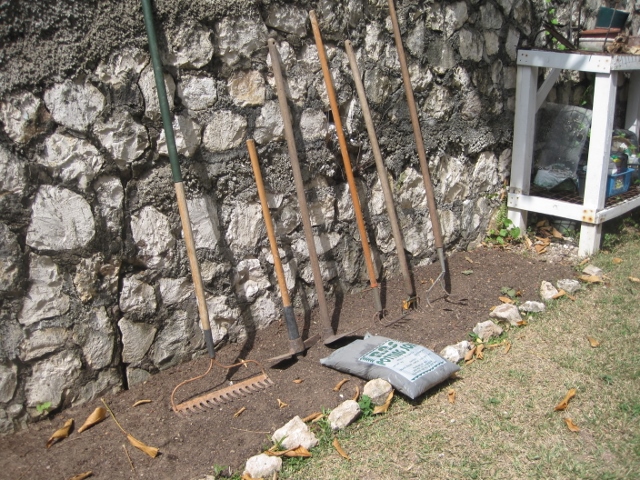 |
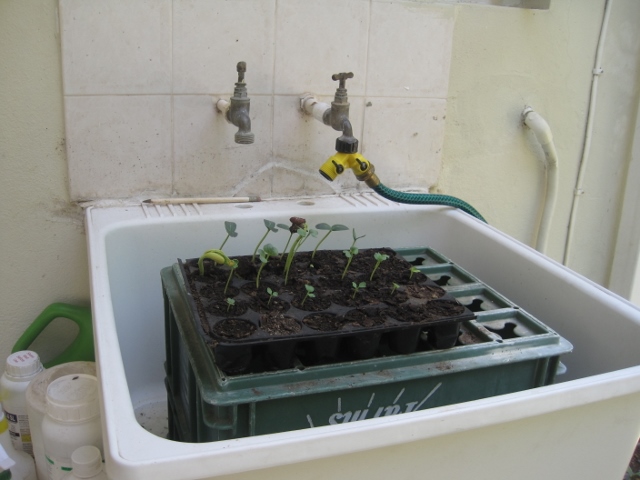 |
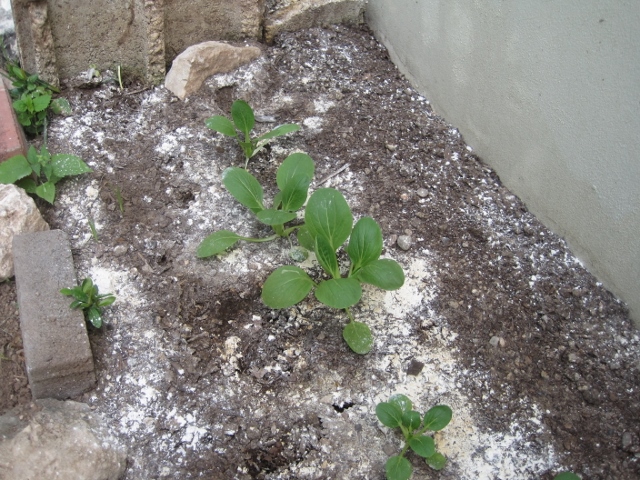 |
Adding Nutrients to your Soil is Key
More details on the above ideas:
- If you are blessed with a large garden area, you may be able to build a small composting shed, open on three sides and roofed divided into two sections for active and resting compost. Or, just a place on the ground that you can cover with a screen or tarp. Urban gardeners, such as we are presently, can use plastic bins, tubs or drums, covered with a screen…whatever the container, you need to find something as the basic material to which you add your kitchen waste etc..This can be old sawdust, dirt, leaves and grass clippings, or purchased potting soils without chemical additives. Two matching containers are best, one active and one filled and resting until after many turnings, it resembles rich, black dirt.
- A 4’wide bed enables you to reach halfway across from both sides without stepping on and compacting the soil in the bed. Presently, our beds are against a wall and so they are 2’ wide.
- As you build soil fertility and add compost, your plants (and weeds) will open up the deeper soil and it will become more enriched.
- Unless you are row planting large areas, it is best to conserve seed and not feed the ants by transplanting healthy starts rather than direct seeding. You may have to place your seed trays in or above water to prevent ants reaching your seed. Transplanting more mature starts will prevent destruction by cut worms who feast on young seedling roots…we also sprinkle diatomaceous earth around young transplants to discourage worms.
- Liquid fish, manure tea and compost are the best fertilizers for building soil and there are also some liquid foliar feeds that help build strong plants like seaweed extracts etc.
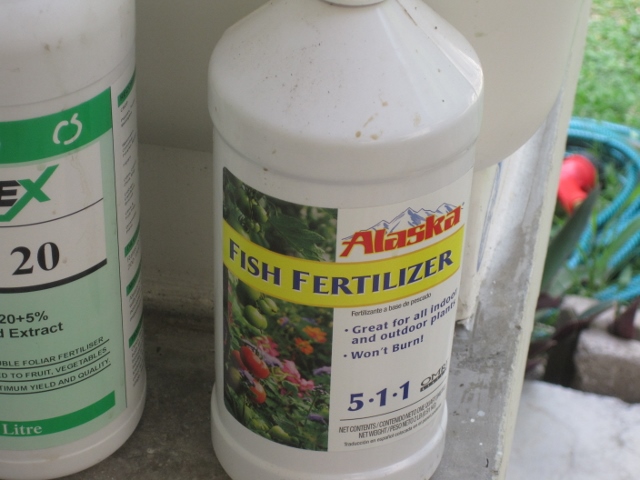 |
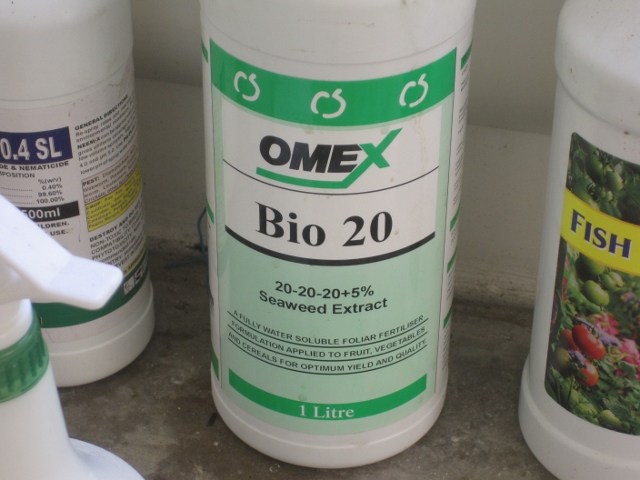 |
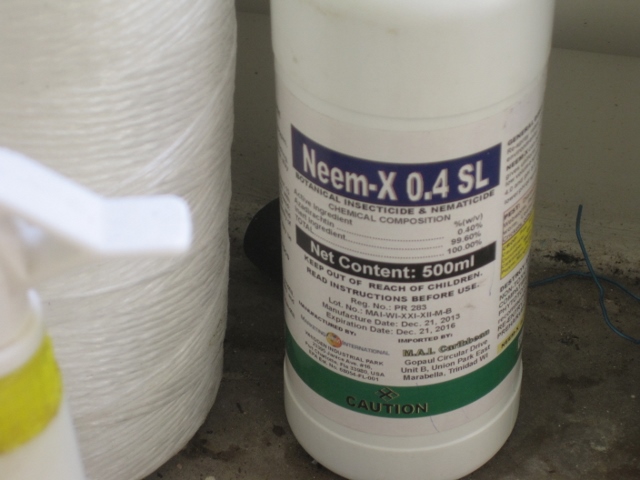 |
Plants Build Immunity, too.
Just like humans, when their immunity is poor and resistance to "bugs" and disease is low, people and plants are more susceptible to illness Insects tune in to weak and sick plants and scavenge them. Continue to build strong plants by building strong soil fertility. Some rescue sprays to repel not kill may be used such as a mixture of garlic, onion, cayenne, dish soap and water to which we add a small amount of Neem oil concentrate, or grow Neem trees and make a tea from the leaves as your repellant.
Check your garden often, pick off insects by hand, cultivate/aerate the soil around growing plants and water as needed during daylight hours to prevent mold overnight.
Our book, Setting Yourself Apart from the SEEDS of CANCER explores healthy living and growing and preparing healthful food.